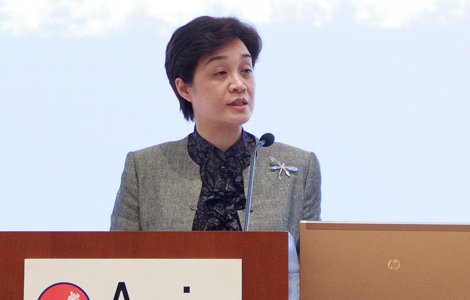China wants US to help build trust on maritime disputes
Updated: 2015-01-28 11:20
By Chen Weihua in Washington(China Daily USA)
|
||||||||
China, which regards the US as biased on maritime territorial disputes in the South and East China seas, has urged the US to say and do more to help strengthen mutual trust and cooperation among countries in the region.
Foreign Ministry spokeswoman HuaChunying made pointed remarks in Beijing on Tuesday when asked to comment on President Barack Obama's words in New Dehli expressing his concerns over the freedom of navigation in Asia Pacific waters.
Hua said China is active in advocating, promoting and contributing to peace and stability in the region.
"We maintain that disputes in the South China Sea should be peacefully revolved through dialogue and consultation between countries directly concerned," she said.
Hua described the overall situation of the South China Sea as stable, saying that China and ASEAN (Association of Southeast Asian Nations) countries have reached a consensus that joint efforts should be made to safeguard peace and stability in the South China Sea.
"Freedom of navigation and overflight there have never seen any problems and will never see any in the future with the concerted efforts of China and relevant ASEAN countries," she said.
"If relevant countries do wish for peace and stability of the region, they should do and say more that is conducive to the enhancement of mutual trust and cooperation between countries in the region," Hua said.
Such words are often aimed directlyat the US, which many Chinese believe is biased in trying to serve as a referee on maritime territorial disputes between its allies and China.
Many experts in both China and the US agree that freedom of navigation in the East and South China seas is as important to China as anyone else, since China has become the world's largest trading nation and the largest trading partner for more than 100 countries in the world, particularly those in the region.
US State Department spokeswoman Jen Psaki reiterated on Tuesday that the US does not take a position on sovereignty. "We do continue to encourage dialogue and for all sides to reduce tensions," she said, without saying whether the US is biased or not.
"There has been a need to express concern at times about the actions of China. We have done that on occasion. We certainly raised that privately as well," she told the daily briefing.
US Under Secretary for Political Affairs Wendy Sherman was visiting China on Jan 27-28 to discuss a wide range of issues.
In Beijing, Sherman had met senior Chinese government officials and scholars to discuss a wide range of bilateral and regional issues, including the P5+1 negotiations with Iran and the situation in the Middle East. She also met members of the civil society for a roundtable discussion, according to Psaki.
A State Department press release last Friday described Sherman's visit to China as "reflecting continuing high-level US engagement with China and the importance of strengthening our bilateral relationship".
Sherman will wind up her visit to China on Wednesday before going to South Korea on Jan 28-29 and Japan on Jan 29-30 - the two US security allies in the region that are at odds with each other largely due to territorial disputes and historical issues.
The US has also been concerned that growing trade with China by countries in the region and its allies such as South Korea will pull them away from the US.
In his State of the Union address last week, Obama said that the US, rather than China, should write the rules for trade in the region.
chenweihua@chinadailyusa.com
(China Daily USA 01/28/2015 page1)

 'Polar bear' roams in London, but don't panic
'Polar bear' roams in London, but don't panic
 Old photos of China's military parade
Old photos of China's military parade
 US, China expected to lead on climate talks
US, China expected to lead on climate talks
 Weighing in on justice in China
Weighing in on justice in China
 Northeastern US braces for 'crippling' blizzard
Northeastern US braces for 'crippling' blizzard
 At least 2 dead, dozens hurt after bus hits road barrier
At least 2 dead, dozens hurt after bus hits road barrier
 Red carpet of 21st annual SAG Awards in Los Angeles
Red carpet of 21st annual SAG Awards in Los Angeles
 New Year celebrated with dance mix
New Year celebrated with dance mix
Most Viewed
Editor's Picks

|

|

|

|

|

|
Today's Top News
US, China expected to lead on climate talks
Weighing in on justice in China
China wants US to help build trust on maritime disputes
Yahoo to spin off Alibaba shares
China to open markets to all apples from US
Parade will commemorate victory over Fascism
Expatriates to be lured for startups
Beijing gears up for Super Bowl
US Weekly

|

|







